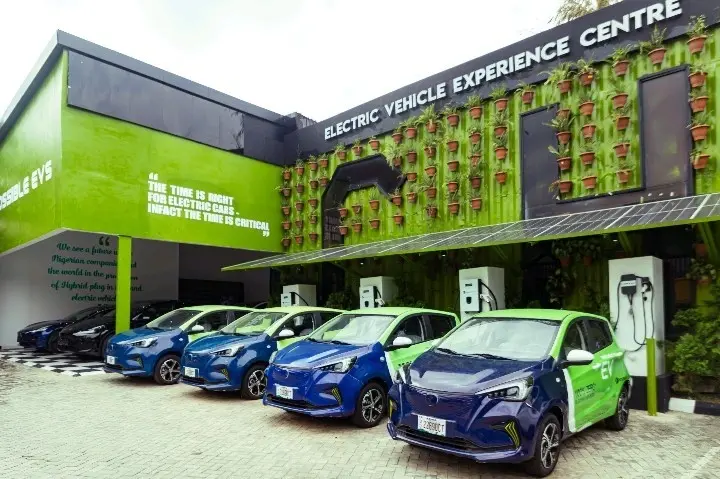Possible EVS, a Nigerian electric mobility firm, is set to launch EV assembly plants in Nigeria that will produce up to 10,000 EVs annually.
Possible Electric Vehicle Solution (Possible EVS), a Nigerian electric mobility company in Abuja, is setting up plants to manufacture electric vehicles in Nigeria.
“We’re in the design and production phase,” Mosope Olaosebikan, CEO of Possible EVS, told TechCabal in an interview. “Hopefully, by next year, we will start assembling in Nigeria but right now we’re assembling abroad.”
Located in the Idu industrial area of Abuja, the manufacturing plant, when fully operational, will produce up to 10,000 electric vehicles yearly—including minibuses, tricycles, pick-up, and taxis—at its initial phase, according to Olaosebikan.
Possible EVS is among other electric mobility startups on the continent justling for a top spot in Africa’s nascent EV sector, which is estimated to reach $21.4 billion in value by 2027. Spiro, an e-mobility company, signed a $63 million debt financing to fund two electric motorcycle assembly and battery manufacturing plants in Benin and Togo in 2024. Roam, an electric mobility company, recently introduced Kenya’s first locally manufactured electric bus and Qore, a Sterling Bank-backed company in Nigeria, is converting regular vehicles—motorcycles, tricycles and mini buses—to electric vehicles and will deploy 100 electric tricycles in the next month.
Electric taxis
While Possible EVS is primarily a manufacturer of electric vehicles, the company recently launched an EV based taxi service as a use case. Currently, it is testing the electric taxis in Abuja and will deploy them for use this month. “The testing phase is for us to get the data and understand human behaviour,” Olaosebikan told TechCabal. “So far, the feedback has been exciting.”
The electric taxis can go 400 km on a single charge—about 37 round trips between Garki and Jabi, or a one-way trip from Abuja to Kaduna. Possible EVS has plans to expand fleets of electric taxis to Lagos and Akwa Ibom at the end of the year.
Possible EVS also offers a public charging station at its recently launched electric vehicle experience centre (EVEC)—which it opened to sensitise people on the use of electric vehicles—in Abuja. While other EV companies like Qore offer battery swaps for depleted batteries at its charging station, Possible EVS fast charging infrastructure recharges an electric vehicle to full capacity in under an hour at the rate of ₦1,200 ($1.56). The startup also runs a mobile charging station that can recharge EVs at any location—just in case your electric vehicle runs out of battery in the middle of the road.
Electricity supply is abysmal in Nigeria; the startup operates a hybrid electric charging station, a 50% mix of solar energy and grid electricity supply. The company plans to deploy a completely off-grid solution which Olaosebikan explained was a cheaper alternative.
Funding strategy and sales model
The company raised $5million internally for its initial fund raise and is looking to raise more funds by Q1 2024. The company, which runs an asset financing model, says it primarily makes money off the sales of electric vehicles. Olaosebikan says the company is currently in talks with financiers and people willing to do hire purchase. “We are manufacturers, at the end of the day and we just seek partnership with various companies: banks, the government and companies like Moove, that can do asset financing.”
While Possible EVS is looking to explore the partnership route for the sale of its vehicles, Olaosebikan says there are arrangements for individuals who want to purchase the EVs for personal use. By his estimates, the average cost of an EV is between ₦12 million ($15,629) and ₦200 million ($260,497).
While Possible EVS is putting finishing touches on the launch of its assembly plant, the company is set to launch an EVEC centre in Lagos and expand its multiple charging points across the country before the end of the year. It will also expand its fleet of electric taxis to Lagos and Akwa Ibom states in Nigeria, Olaosebikan told TechCabal.























